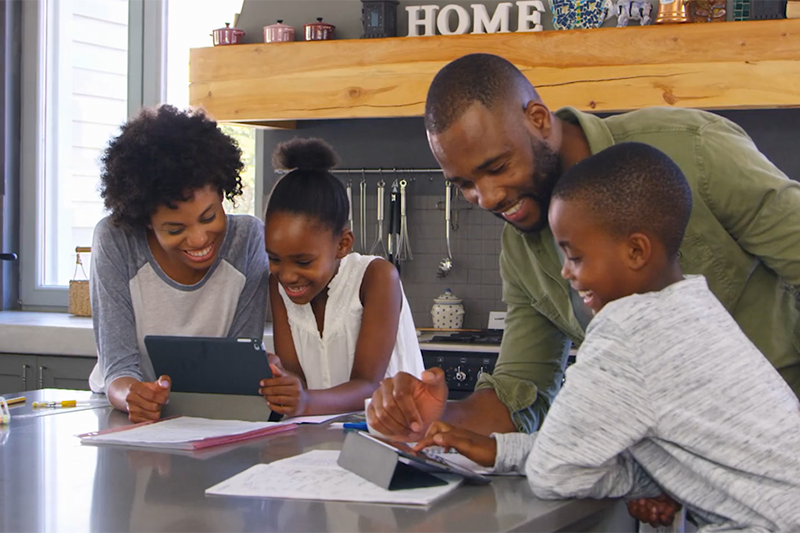A Parent’s Guide to Guardianship throughout All Stages of Life

Becoming a parent is a journey filled with immeasurable love and joy, but it also comes with the responsibility of safeguarding your child’s well-being. While we strive to protect our children from harm, life can be unpredictable, and it is essential to plan for their future. One aspect that often requires thoughtful consideration is guardianship – the legal and practical arrangements for your child’s care in the event of unforeseen circumstances.
Guardianship is a topic that can be challenging to approach, as it forces us to confront difficult scenarios. However, by proactively thinking about guardianship at different stages of your child’s life, you can ensure their continued safety, care, and stability should anything happen to you or the other parent.
For example, let’s say a woman named Lorelai has a daughter named Rory. Rory’s dad, Christopher, is very irresponsible and is in and out of Rory’s life.
When Rory is 5, Lorelai is in a horrible accident. Fortunately, she has lots of life insurance to care for Rory in just this scenario. Unfortunately, Tennessee law makes Christopher Rory’s guardian and Lorelai did not have any documents providing for who should handle Rory’s money until she becomes an adult. Rory now goes to live with Rory and Christopher’s new girlfriend, Sherry, who promptly enrolls her in boarding school in Switzerland. The Court also rules that Christopher, as Rory’s dad, gets control of the money that Lorelai left for her.
Christopher means well, but he uses Rory’s money to pay for things that Lorelai wouldn’t approve of, such as a pony, a sidecar for his motorcycle, boarding school and other things that are fun. As a result, when Rory graduates high school, there is no money left for her trip to Fez or college tuition.
Lorelai’s parents, Emily and Richard, end up having to pay for Rory’s expenses out of their own pocket, which they are happy to do, but wish that Rory’s funds had been left in the care of someone more responsible, like Lorelai’s best friend, Suki.
In this blog post, we will explore the importance of contemplating guardianship throughout your child’s journey, from infancy to adulthood. We will discuss the key considerations at each stage and offer guidance on making informed decisions that align with your child’s best interests.
- Infancy. In the early years of your child’s life, guardianship primarily revolves around immediate care and meeting their basic needs. It is essential to consider individuals who can provide a loving and nurturing environment similar to what you provide. Factors such as stability, proximity, and compatibility should be taken into account when selecting potential guardians.
- Childhood: As your child grows, guardianship encompasses more than just physical care. It involves guiding their education, moral development, and emotional well-being. Consider individuals who share your values and can provide a supportive and enriching environment. Open communication and discussions with potential guardians are crucial to ensure they understand your expectations and are willing to take on the responsibility.
- Adolescence: Teenage years bring unique challenges, and guardianship takes on a different dimension. It is vital to involve your child in discussions about guardianship, taking their preferences into account. Encourage open conversations about their wishes and desires, and help them understand the importance of having a trusted guardian to turn to during this transformative stage.
- Adulthood: As your child transitions into adulthood, guardianship may evolve into a more consultative role. However, it is still important to establish legal arrangements and document your wishes regarding financial matters, medical decisions, and overall support. While your child may have more autonomy, having a designated person to offer guidance and assistance can be invaluable.
Throughout all stages, it is crucial to review and update your guardianship arrangements regularly. Life circumstances change, and the individuals you initially chose as guardians may no longer be the best fit. Stay in touch with potential guardians, keep them informed of any changes, and ensure they are still willing and able to assume the responsibility.
In conclusion, thinking about guardianship at different stages of your child’s life is an essential aspect of responsible parenting. By considering the unique needs and requirements of each stage, you can make informed decisions that prioritize your child’s well-being. Discussing guardianship openly, involving your child when appropriate, and establishing legal arrangements will provide peace of mind, knowing that your child will be cared for by trusted individuals should the need arise.
If you are interested in learning more about how to protect your minor children in the event of your death or incapacity, we’ve designed a program just for you! Our Proactive Parents Group will walk you through considerations and provide you with customized documents for your family. Through four interactive workshops with a licensed Tennessee attorney, you’ll walk away with confidence knowing your family is protected. Be proactive today – click here to learn more and to sign up!

